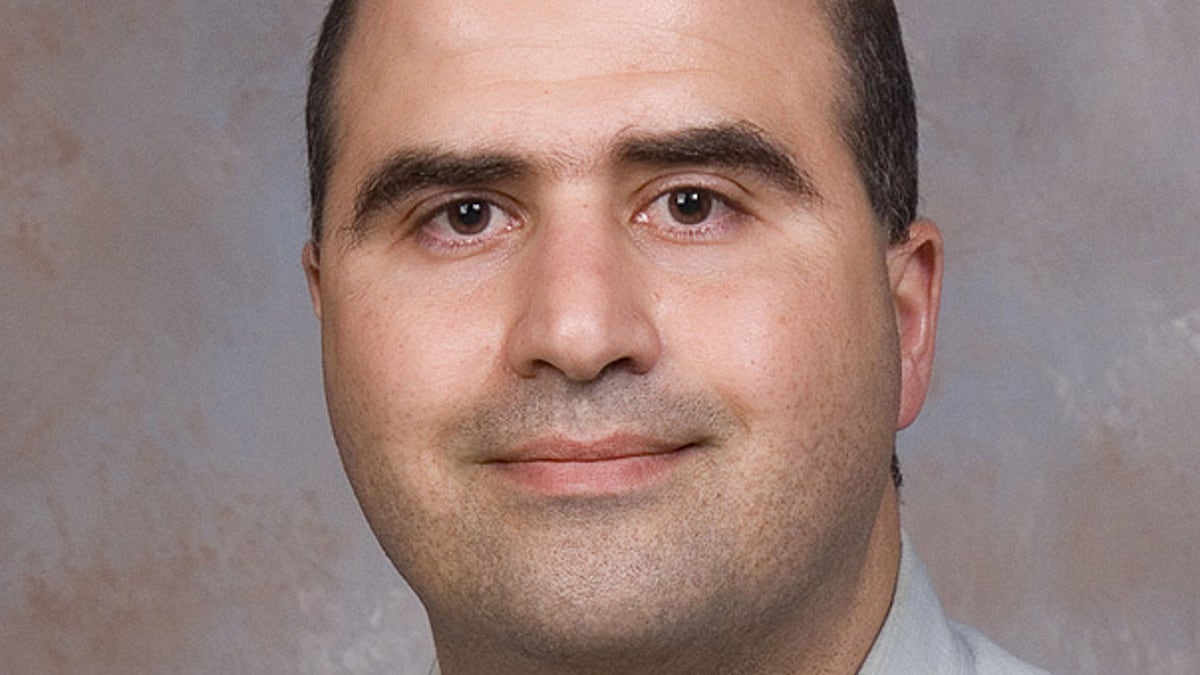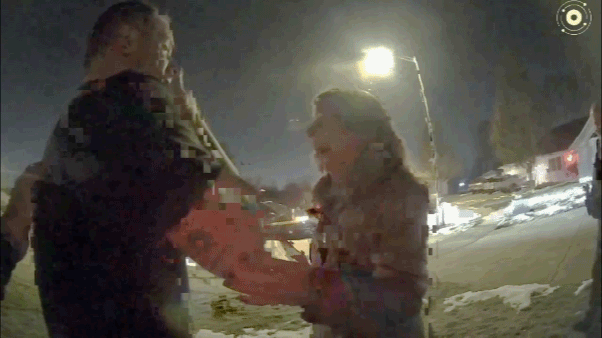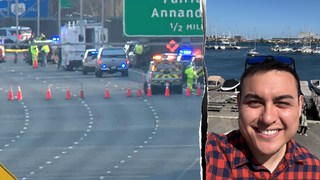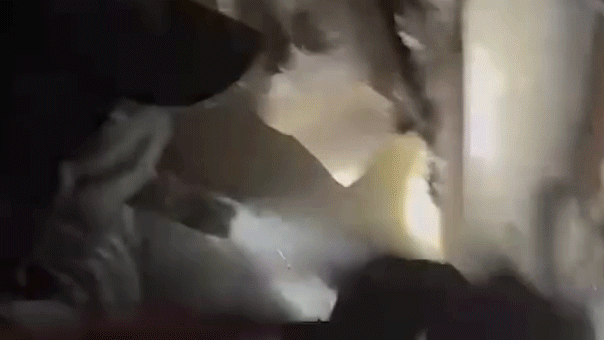
Maj. Nidal Malik Hasan is seen in this 2007 photo. (AP)
FORT HOOD, Texas – FORT HOOD, Texas (AP) — Wearing his Army uniform and sitting solemnly in a wheelchair, the psychiatrist accused of gunning down 13 people at Fort Hood made his first courtroom appearance Tuesday and won a delay in his case.
Maj. Nidal Hasan, who was paralyzed after being shot by two Fort Hood police officers, only spoke when answering questions about the proceedings with a soft: "Yes, sir."
His attorneys sought a delay in his Article 32 hearing because they needed more time to review reams of documents they recently received and still lacked other key documents, including the FBI ballistics report and a government review on the Nov. 5 shootings.
The Article 32 hearing, similar to a civilian grand jury proceeding in which a judge hears witness testimony to determine whether the case should go to trial, is set for Oct. 4.
Hasan is charged with 13 counts of premeditated murder and 32 counts of attempted premeditated murder in the worst shooting on a U.S. military post.
Before Tuesday's one-hour hearing, Hasan was flanked by military police as he rolled his wheelchair into the courtroom and up to the defense table. One of his attorneys said Hasan was cold, and later an attorney draped a large seafoam-green blanket around his shoulders. Hasan pulled it tightly against him and sometimes covered his nose with it during the proceeding.
He answered "yes, sir" or "I understand, sir" when asked if he understood his rights, if he had read the charges against him and if he knew his right to a speedy trial.
Officials had increased security at Fort Hood on Tuesday, blocking off the road to the court building, having bomb-sniffing dogs search the parking lot and using hand-held metal detectors to screen the few people approved to be in the court. Usually, none of those precautions are taken.
Col. Michael Mulligan, the lead prosecutor, objected to delaying the Article 32 and said prosecutors would be ready to proceed in July. He said prosecutors did not yet have the FBI ballistics report or government review but would continue working to provide those to the defense.
Col. James L. Pohl, a military judge who is acting as the investigating officer in the case, said he planned to call the 32 injured victims as witnesses during the Article 32 hearing.
Pohl said that while authorities have not decided whether to seek the death penalty, he was asked to investigate whether Hasan's case had any aggravating factors — which are only relevant in death penalty cases. Pohl said he then asked prosecutors about it, which is why they sent a notice last month to defense attorney John Galligan outlining one aggravating factor: multiple deaths in the same incident.
If convicted, Hasan could be sentenced to death only if the military jurors determine there is an aggravating factor, according to military law.
Hasan is awaiting a mental evaluation, which is to be conducted sometime after the Article 32 hearing. Doctors will determine whether Hasan had a severe mental illness at the time of the shooting. If so, they will offer a clinical psychological diagnosis and determine whether it prevented Hasan from knowing his alleged actions were wrong at the time, and if he is competent to stand trial, according to military law.
While Tuesday's hearing was the second for Hasan, it was the first time he'd appeared in a Fort Hood courtroom. His initial hearing — two weeks after the shootings — was held in his hospital room at San Antonio's Brooke Army Medical Center.
Hasan was treated at the San Antonio facility until his April transfer to the Bell County Jail, which houses military suspects for nearby Fort Hood. The military justice system does not have bail for defendants.









































